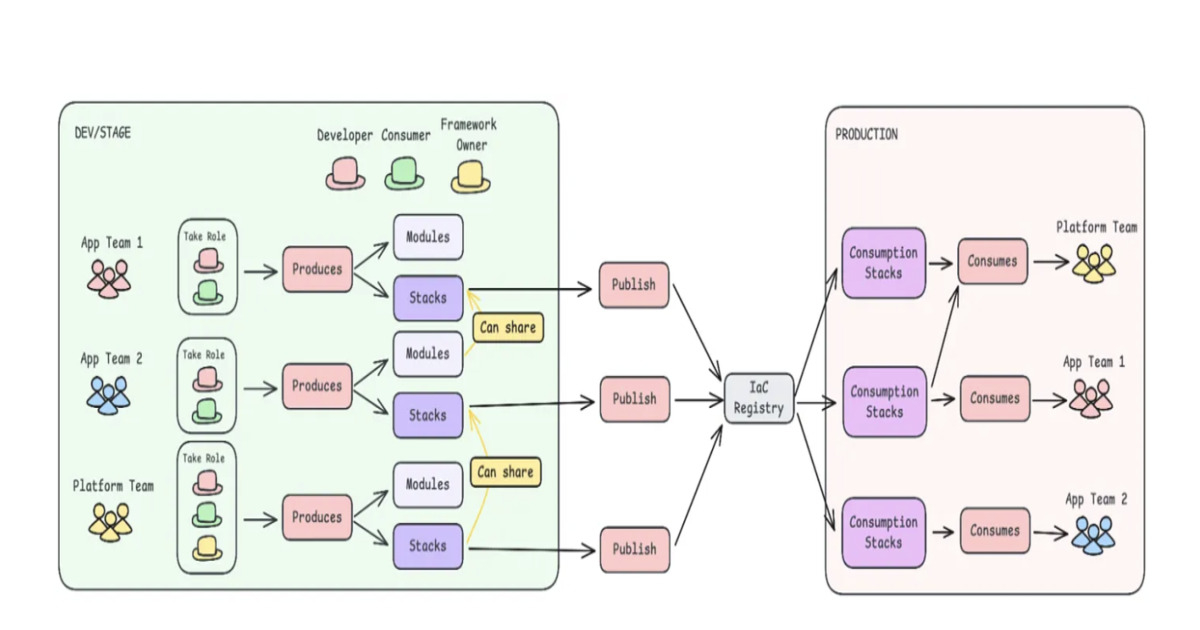Codetown
Codetown ::: a software developer's community
Cloud Computing Village
Information
About The Cloud Computing Village
(image from Wikipedia)
Cloud Computing is an enabling technology that essentially relies on distributed data stores and networks to allow data storage across distributed containers. There are many pros and cons to consider, a world of approaches and uses to discuss. We'll talk about them here in the Cloud Computing Village. Join us!
Discussion Forum
What's the difference between Grid computing and Cloud Computing 5 Replies
I don't clearly catch the difference betwenn these two concept. Someone told me that the essential différence is that the cloud computing give you a large space of storage and the grig give more…Continue
Started by Hervé-greg MOKWABO. Last reply by Hervé-greg MOKWABO Nov 29, 2011.
Searching for Cloud architecture
After reviewing architecture models from several vendors and industry organizations, I believe we are witnessing an early evolutionary period, rather than the culmination of PaaS. The lack of…Continue
Tags: architecture, Cloud, PaaS
Started by Chris Haddad Nov 25, 2011.
Shameless Plug: New Application 1 Reply
Hey everyone,Don't know if you remember me but I did the Android class last year. Anyway I just published my first app. It is a pay app but that is to support development :-). Anyway look up Motion…Continue
Tags: Android
Started by Jackie Gleason. Last reply by Michael Levin Oct 25, 2011.
Cloud Computing Reading List
![]() Loading feed
Loading feed
Comment Wall
Comment
-
Comment by Chris Haddad on November 18, 2011 at 9:50am
-
Orlando Workshop on December 15, 2011
Title: understanding cloud-enabled modular middleware
WSO2 Carbon and Stratos provides a complete middleware platform for Enterprise computing: from on-premise to a full cloud-enabled runtime. In this session we will spend the morning looking at the Carbon platform – including leading ESB, AppServer, Governance Registry and more. In the afternoon we will look at the way this runtime is also available in a multi-tenant scalable, elastic architecture. This session will cover SOA and Cloud middleware, PaaS as well as digging deep into Cloud concepts.
This hands-on workshop provides a real opportunity to understand Carbon, OSGi middleware, PaaS, Stratos, and get going with a Cloud Platform. StratosLive is a complete running platform in the cloud, and participants will be encouraged to set up a tenant using their laptops during the workshop, and will understand how to install and use Stratos in a Private PaaS environment.
Location: Orlando, FL
Date: December 15, 2011
Registration page: http://wso2.com/events/workshops/2011-december-orlando-carbon-and-s...
-
Comment by Efren Katague on October 27, 2011 at 11:04pm
-
Thanks, Michael for the welcome note. I look forward to learning more about this new challenging technology.
-
Comment by Michael Levin on October 27, 2011 at 10:55pm
-
Hi Efren and welcome to the group. We had some great discussions about ClouD Computing tonight at the OrlandoJUG meeting. Stay tuned - I hope the lads post some notes... All the best, Mike
-
Comment by Thomas O'Hare on October 26, 2011 at 7:56am
-
Michael
Look forward to checking out the newest old technology! ;-)
Thanks,
Thomas
-
Comment by Blaine Buxton on October 25, 2011 at 10:42pm
-
Hello Micheal. I look forward to the discussions.
-
Comment by Michael Levin on October 25, 2011 at 10:31pm
-
Hi Blaine! I just downloaded iOS5, so I guess I am cloud computing! Welcome to the group! /m
-
Comment by Michael Levin on October 25, 2011 at 9:12pm
-
Howdy, Jackie! Thanks for dropping by, Check out the Issues discussion. There's some food for thought... Best, Mike
-
Comment by Michael Levin on October 25, 2011 at 8:47pm
-
Hey, Thomas! Thanks for joining the Cloud Computing Village. Looking forward to learning together... Best, Mike (enjoying Florida sunshine!)
Notes
Welcome to Codetown!
 Codetown is a social network. It's got blogs, forums, groups, personal pages and more! You might think of Codetown as a funky camper van with lots of compartments for your stuff and a great multimedia system, too! Best of all, Codetown has room for all of your friends.
Codetown is a social network. It's got blogs, forums, groups, personal pages and more! You might think of Codetown as a funky camper van with lots of compartments for your stuff and a great multimedia system, too! Best of all, Codetown has room for all of your friends.
Created by Michael Levin Dec 18, 2008 at 6:56pm. Last updated by Michael Levin May 4, 2018.
Looking for Jobs or Staff?
Check out the Codetown Jobs group.
InfoQ Reading List
Google Launches Automated Review Feature in Gemini CLI Conductor

Google has enhanced its Gemini CLI extension, Conductor, by adding support for automated reviews. The company says this update allows Conductor "to go beyond just planning and execution into validation", enabling it to check AI-generated code for quality and adherence to guidelines, strengthening confidence, safety, and control in AI-assisted development workflows.
By Sergio De SimoneFrom Central Control to Team Autonomy: Rethinking Infrastructure Delivery

Adidas engineers describe shifting from a centralized Infrastructure-as-Code model to a decentralized one. Five teams autonomously deployed over 81 new infrastructure stacks in two months, using layered IaC modules, automated pipelines, and shared frameworks. The redesign illustrates how to scale infrastructure delivery while maintaining governance at scale.
By Leela KumiliGoogle Publishes Scaling Principles for Agentic Architectures

Researchers from Google and MIT published a paper describing a predictive framework for scaling multi-agent systems. The framework shows that there is a tool-coordination trade-off and it can be used to select an optimal agentic architecture for a given task.
By Anthony AlfordGoogle Cloud Brings Full OpenTelemetry Support to Cloud Monitoring Metrics

Google Cloud recently unveiled broad support for the OpenTelemetry Protocol (OTLP) in Cloud Monitoring, marking a step toward unifying telemetry collection across its observability stack.
By Craig RisiAWS Launches Agent Plugins to Automate Cloud Deployment

AWS launched Agent Plugins for AWS, providing AI coding agents with specialized deployment skills. The initial deploy-on-aws plugin transforms workflows by accepting commands like "deploy to AWS" and generating complete pipelines with architecture recommendations, cost estimates, and infrastructure code. Supported in Claude Code and Cursor, AWS claims 10-minute deployments versus hours manually.
By Steef-Jan Wiggers
© 2026 Created by Michael Levin.
Powered by
![]()
You need to be a member of Cloud Computing Village to add comments!